Photographs: Reuters M R Venkatesh
The order of the Supreme Court cancelling 122 2G licences instantly sparked the debate on its impact on the image of India as an investment destination.
Perhaps there is no historical parallel in any democracy where the image of the incumbent government is so completely disgraced and hence divorced from that of the country. This is what happens when rootless wonders, power brokers and alien agents manipulate constitutional shortcomings and capture power.
Simply put, the story of UPA is one of omissions and commissions. In fact, every time the Supreme Court upholds the majesty of law, the UPA government invariably finds itself in the dock.
And surprisingly, this is a government that is studded with several "eminent" lawyers most of whom forgot the elementary legal principle - fraud vitiates everything. That explains why, once the fraud was established by the petitioners, the Supreme Court had no choice but to necessarily cancell all licences. Little do we realise that had Supreme Court failed to cancel these licenses, India would have well and truly become a classical definition of banana republic.
Interestingly, details of the fraud leading to the allocation of these licenses have been in public domain for over a few years now.
2G scam: UPA's 'eminent' lawyers forgot the law
Image: There are serious questions for the UPA government.Photographs: Reuters
No wonder, the judgement does not surprise many who have been following the case. Strangely, those who were silent when India's image was dented by the fraud in the first instance seem shocked and surprised when the Supreme Court has actually remedied the situation.
Or are they implicitly carrying brief for the fraudsters? Obviously, the implications of this order are profound: It is now a matter of detailing that the lower courts have to do and figure the smaller question of who actually committed the fraud and prescribe appropriate punishment.
Nevertheless there are serious questions for the UPA government - how many of our cabinet minister(s) - given the facts and circumstances of the case - directly or indirectly participated in this fraud? And this, not the order, is actually denting the image of the country across the world.
Given this paradigm, the usual suspects have been pressed into service - obviously to salvage the image of the UPA government. In the process no one seems to be bothered about the image of the country.
Over and above their false beard which is falling apart, the arguments put forth by these "experts," have been a dead give away. Some have opined that FDI flows would be adversely impacted on account of this judgement.
2G scam: UPA's 'eminent' lawyers forgot the law
Image: The same people had welcomed the judgement in Vodafone case.Photographs: Reuters
Some have commented as to how foreign investors may even shy from entering into a contact with the Indian government in future. Some have called this judgement perverse.
But it was these very buffoons - yes buffoons - who were going all over the town last week welcoming the Supreme Court judgement in the Vodafone case, which gave a tax relief in excess of Rs 11,000 crores to Vodafone. And now when their sponsorers are in the receiving end, they are damning the judgement, judiciary and the Indian legal system.
In the process little do most people realise that in both cases it was less than honest approach of the government - read union cabinet - that precipitated matters in the first place. And that is the central to the issue on hand. Investment, much less foreign investments, do not get impacted by such events.
On the contrary, investors across continents will be assured that in India rule of law prevails. To me that is the biggest take home from the Supreme Court decision in canceling the licenses. Forgetting this cardinal principle of investment, sponsored analysts have been hopping from one studio to another, writing columns and even speaking in various forums as to how FDI flows will be impacted by this judgement.
2G scam: UPA's 'eminent' lawyers forgot the law
Image: Former Telecom Minister A Raja.Photographs: Reuters
And it is this cabal - consisting of some in the media, corporate houses and professionals who are at the root of the present conundrum. What has in fact dented the image of the UPA government is not the fraud per se as much as the defense put forth by its team of "eminent" lawyers.
Importantly, the Supreme Court order has clearly exposed the understanding of law by these "eminent" lawyers. Every time an "eminent" lawyer from the UPA opened their mouth; the UPA loses a million votes, the nation its credibility.
What is forgotten in the melee is that the UPA government cannot from now on localize the theatre of conflict to A Raja, the former telecom minister. In fact, given the profound implications of the Supreme Court Order, it is impossible from now on for the Union Cabinet to escape from the fallout.
And for this sorry state of affairs, the UPA government has to blame it "eminent" lawyers. But if you thought "eminent" lawyers of the UPA were the problem, hang on. There are "eminent" economists who have damaged the country as much as the "eminent" lawyers but with a crucial difference.
If "eminent" lawyers of the UPA have damaged the nation with their loquaciousness, "eminent" economists have damaged the country by their silence!
2G scam: UPA's 'eminent' lawyers forgot the law
Image: Infraction of law is half the problem.Photographs: Reuters
Infraction of law is half the problem. The other half is economics. How could an economist worth his salt allow pricing spectrum in 2007 at prices that were detained in 2001 and be silent? It is a matter of time that courts will be compelled to comment on their silence too.
The problem with eminent economists, like eminent lawyers, is that they do not commit small mistakes. Let me amplify. While it may be extremely difficult to benchmark the performance of these "eminent" economists (unlike lawyers who have been exposed by the Supreme Court rulings), it is interesting to know that The Economist, in it's recent edition attempted to compare the economic performance of several emerging economies including India.
Using what it calls as wriggle-room index, The Economist, has attempted to calculate the flexibility available in the monetary and fiscal policies in an economy especially in the context of potentially destabilizing economic developments in Europe. This analysis by The Economist ranks 27 emerging economies according to their monetary and fiscal wiggle-room.
The Economist employed five indicators to asses the head room available in an economy including - inflation, credit flows, interest rates, currency movements and current account balances. India scores a very high 85 on a scale of 100.
That effectively means that India has very little head room to tackle any macro-economic imbalance.
2G scam: UPA's 'eminent' lawyers forgot the law
Image: India has a score that is rivalled by countries like Egypt. A view of capital Cairo.Photographs: Reuters
What is galling to note here is that India has a score that is only rivalled by rudderless Egypt. Argentina, Pakistan, Venezuela, Columbia are some of the countries (ones that do not even have structured governmental institutions, much less "eminent" economists) that are seen by The Economist to have managed their economy far better and therefore have a lower score and hence a higher wriggle room to manage a crisis.
Mercifully, The Economist has not included warn torn Iraq and Afghanistan in its index. Surely the wriggle-room index is not comprehensive. Nevertheless, it is indicative of all that is wrong with the current state of economic affairs in India.
But there are several tell-tale signs that all is not well with the Indian economy. Reports by international as well as national bodies, are increasingly pointing to a looming economic crisis in India. The odds are in favour of a serious economic crisis.
The precarious state of the finances of the government, the pathetic state of our infrastructure and poor performance of social sectors - in short governance deficit - are all sufficient deterrent for any investor, foreign or domestic, into India.
This explains why there is a significant flow of outbound investment from India. When Indians are reluctant to invest in India, is it fair to expect FDI?
2G scam: UPA's 'eminent' lawyers forgot the law
Image: Prime Minister Manmohan Singh.Photographs: Reuters
Foreign investors are not naive as some sponsored analysts want us to believe. They are completely in the know of the state of the national economy as much as the implications of the Supreme Court order. To assume that they would get threatened by the rule of law in fact exposes the extent to which crony capitalism - a direct beneficiary of UPA government - has prospered in India.
It now boils to the story of Somebody, Nobody, Everybody and Anybody. The 2G scam could have been stopped by Somebody. But Everybody was watching it silently. Nobody did not want to stop it while Anybody could have stopped it. This SC verdict is in a way a sad commentary on the manner in which the union cabinet is functioning - where every minister assumes he is in charge of his fiefdom and would brook no interference from anyone - definitely not even the Prime Minister.
Sooner than later the Supreme Court may have to visit this arrangement. And it is this union cabinet consisting of such eminent people - lawyers and economists - that is derailing investment into India; the former by their loquaciousness, the later by their silence. The problem is the world has realized this. The pity is some within the country fail to realise this. It is time for UPA government to go to save Indian economy.
The author is a Chennai-based chartered accountant.
Comments can be sent tomrv@mrv.net.in

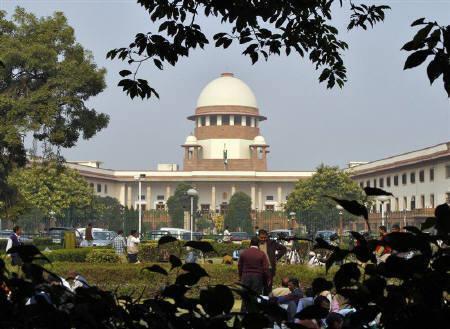


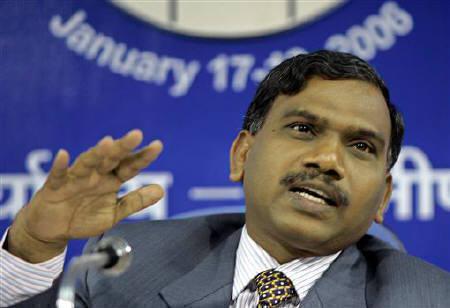
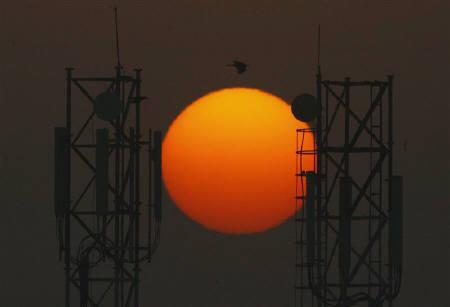
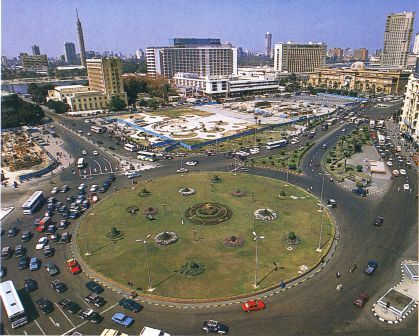
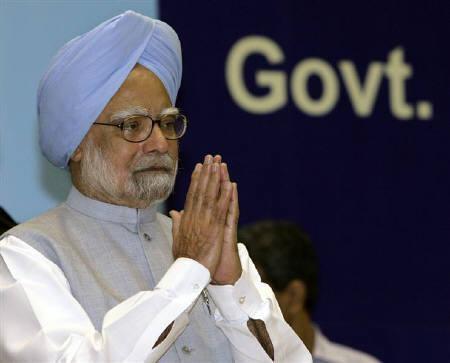
article